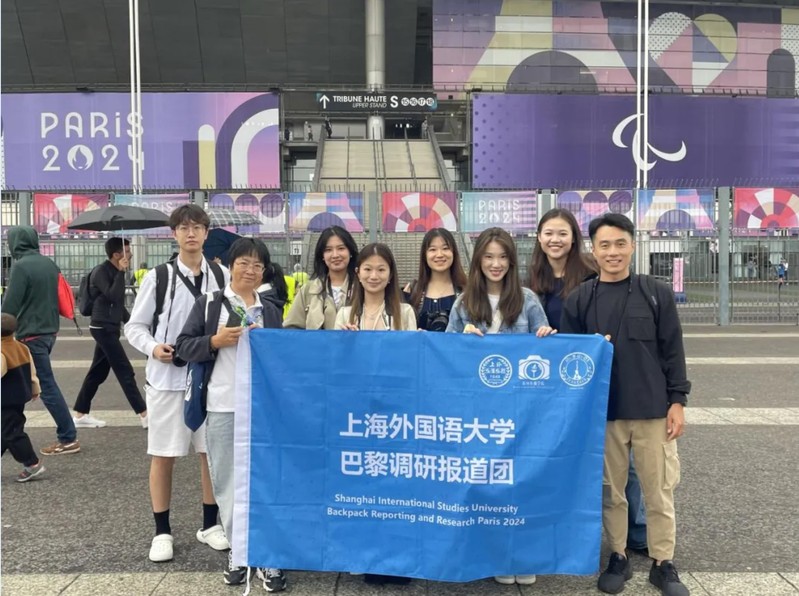
By Jiao Junpeng
Shanghai, October 2024 – A student team from Shanghai International Studies University (SISU) recently completed a research tour of Paris, focusing on the city’s transformation following the 2024 Summer Olympics. Composed of students and teachers from the School of Journalism and Communication and the School of French and Francophone Studies, SISU Backpack Reporting and Research Group aimed to investigate the long-term impact of the Games on local communities, urban development, and the cultural landscape, providing fresh insights from an international perspective.
The team visited several key neighborhoods affected by Olympic-related developments, including La Chapelle, an area known for its diverse immigrant population, and Saint-Denis, the site of several major Olympic events. Saint-Denis, one of Paris’s oldest districts, underwent significant revitalization to accommodate the Games, with new infrastructure and community engagement programs aimed at fostering inclusivity and pride.
“We saw firsthand how the Olympics sparked urban renewal, but we also noticed the complexities behind these changes,” said Lin Liuhan, a member of the research team. “While many residents were proud of the new developments, there were also concerns about rising living costs and the potential loss of cultural identity.”
The group conducted interviews with a range of Parisians, from long-time locals to recent immigrants, to understand how the Olympic-driven changes were impacting their lives. In addition to new housing developments and improved public transport, the team found that many residents had mixed feelings about gentrification and its effects on affordability and community cohesion.
Another key area of the team’s research was accessibility, particularly following the Paralympic Games. Paris has made significant strides in making the city more accessible for people with disabilities. For example, Metro Line 14 stations were redesigned with barrier-free access, including elevators and automated ticket machines. The city also upgraded public transportation facilities with wheelchair-accessible spaces, Braille signage at major landmarks, and new pedestrian crossings equipped with buttons for those with disabilities.
“The focus on accessibility was impressive,” noted Lin. “It’s clear that Paris is committed to inclusivity, making the city more welcoming for all residents and visitors.”
The team also visited Sorbonne Nouvelle University, where they met with Vice President Françoise Lavocat and Professor Laurent Martin. During their discussion, the professors highlighted how the Olympics had not only driven sustainable infrastructure projects but also served as a platform to showcase France’s efforts to balance modernization with cultural preservation.
The research group produced ten feature stories in Chinese, English, and French, exploring themes like Olympic sustainability, urban legacy, and cultural exchange. These articles were published in major Chinese media outlets such as The Paper and Shanghai Daily. The students also compiled an in-depth report on Paris’s post-Olympic development, covering topics such as venue sustainability, infrastructure upgrades, and the economic impact of the Games, with a focus on the strengthening of Franco-Chinese cultural ties.
By examining both the successes and challenges of Paris’s Olympic legacy, the SISU research team has provided valuable insights for urban studies and cultural research, offering a nuanced perspective on how global events can shape the future of cities.


 |Hongkou Campus|550 Dalian Road (W), Shanghai 200083, China |Songjiang Campus|1550 Wenxiang Road, Shanghai 201620, China
|Hongkou Campus|550 Dalian Road (W), Shanghai 200083, China |Songjiang Campus|1550 Wenxiang Road, Shanghai 201620, China